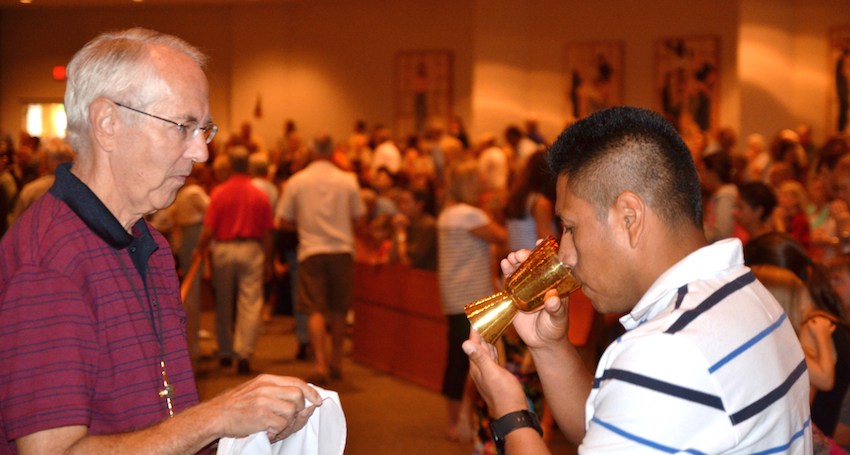The Eucharistic Minister’s Words

Every now and then I have readers email me directly. Here’s one I received earlier this week:
“Last week my Extraordinary Minister of Holy Communion was saying, “THIS IS THE Body of Christ.” It struck me as wrong. Is this ad-libbing, embellishing, inappropriate, or no problem?”

In case anyone is interested, here was my reply…
I’m pretty confident in calling this an embellishment, one which is most likely inspired by the admirable desire on the part of the Extraordinary Minister to emphasize to the communicants what/who they are receiving.
There are lots of embellishments I’ve seen over the years, many of which I’ve liked. However, I’m a “Say the black, do the red” kind of guy and think that we should generally just perform the Liturgy given to us by the Church – it’s best for everyone that way.
After a little bit of digging around the website for the US Conference of Bishops, I found confirmation of my hunch:
The proper and only permissible form for distributing Holy Communion is to offer the consecrated bread by saying, “The Body of Christ” and to offer the consecrated wine by saying, “The Blood of Christ.” No other words or names should be added; and the formula should not be edited in any way. (Cf. GIRM, 161; 284-287).
I’m not Catholic, but I was raised Roman Catholic. I don’t remember Extraordinary Ministers. I’m guessing that’s not a rank achieved by excellent distribution of the Eucharist elements, nor even one achieved by an awesome homily. Do you mind informing this curious outsider?
hahah…no. The title of “Extraordinary Minister of Holy Communion” is the technical name for non-clergy who distribute the Eucharist (since the “ordinary” ministers of the Eucharist are deacons, priests and bishops).
From the USCCB website:
I helped at a local Newman Center, and one of the staff there called herself “Picky”. She would call me picky for insisting on this formula, haha. To me, it always seemed as though “The Body of Christ” had a twofold meaning – one in recognition of the transubstantiation of the host, the other the transformation of me into the Body of Christ. Why settle for “Andrew” when I could be something bigger?
Well, quite!